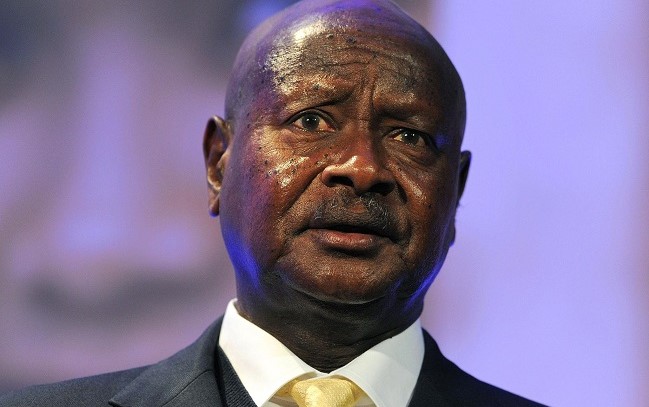Over 70 Ugandan and Congolese civil society organisations (CSOs) as well as their partners are calling on the Ugandan government, China National Offshore Oil Corporation (CNOOC) and TotalEnergies to prioritise the economic well-being of Ugandans, biodiversity conservation and climate action by investing in clean energy instead of climate-wrecking projects such as the Kingfisher, Tilenga and East African Crude Oil Pipeline (EACOP) ones.

The CSOs made the call on Tuesday, January 24, 2023, at a time when the launch of drilling for the Kingfisher oil project in Kikuube district is expected to take place. The Ugandan president, Yoweri Kaguta Museveni, is expected to officiate at the launch ceremony.
The Kingfisher project, which is operated by CNOOC (U) Ltd, will involve the drilling of 31 wells. The wells will be drilled within Lake Albert. Per Uganda’s Ministry of Energy, the deepest Kingfisher oil project well is 7km deep.
CNOOC (U) Ltd is working alongside its joint venture partners that include the Ugandan government and TotalEnergies. These partners also plan to develop the Tilenga and EACOP oil projects.
“Ugandans, East Africans and indeed all global citizens of goodwill should be concerned about the Kingfisher, Tilenga and EACOP oil projects. The projects are located in one of the last frontiers for biodiversity conservation -the Albertine Graben- in Uganda. The Graben is home to forests, 70% of Uganda’s national parks, major lakes such as Albert, River Nile and others.
These ecosystems and biodiversity support Uganda’s major economic activities such as agriculture, fishing, tourism and business. By endangering biodiversity therefore, the joint venture partners are risking the majority of Ugandans’ economic well-being,” Mr. Dickens Kamugisha, the CEO of Africa Institute for Energy Governance, says.
It should also be recalled that the world is faced with the climate change crisis characterised by unpredictable weather patterns, prolonged dry seasons, wetter-than-usual wet seasons and others in Uganda. The Kingfisher, Tilenga and EACOP oil projects will result in the production of millions of tonnes of carbon per year. They are also driving deforestation and forest degradation in Uganda’s Albertine Graben, actions that exacerbate climate change impacts.
“The climate crisis poses a major threat to Uganda’s main economic activities. In the Updated Nationally Determined Contributions (NDCs) of September 2022, Uganda’s Ministry of Water and Environment identified ecosystems, agriculture, fisheries, forestry, business and other economic sectors as being the most at risk of climate change impacts.
The agriculture, fisheries and forestry sectors employ 61.4% of Uganda’s labour force, per the 2021 Uganda Labourforce Survey by the Uganda Bureau of Statistics (UBOS).
With their Kingfisher, Tilenga and EACOP oil projects, CNOOC (U) Ltd, TotalEnergies and the Ugandan government are imperiling the livelihoods of the 61.4% of Uganda’s labour force, not to mention their dependents that include children and youth,” Ms. Norah Luyiga, the Communications Officer of Youth for Green Communities (YGC), says.
The drilling of wells under Lake Albert has also raised concerns amongst fishing communities.
“Fishing is a major economic activity where I come from in Buliisa. It is also important nationally as the sector directly and indirectly employs over 5 million people. However, the fishermen on Lake Albert have been complaining that the fish catch from the lake has been declining.
They say that an oil-induced population influx and poor fishing practices are to blame. They also say that Tullow Oil’s seismic blasting during the oil exploration phase negatively affected their fish catch. They are worried that oil drilling in Lake Albert will worsen their misfortunes,” Mr. Maxwell Atuhura of Tasha Africa Research says.
Ms. Irène Ngadriko Gombe of Forum Des Engages Pour Le Developpement Durable (FORED) from the DR Congo to which Lake Albert extends adds: “About 20,000 fishers in the DRC rely on Lake Albert to make a living. The lake is also a source of water for communities in DR Congo and Uganda.
“We have seen more conflicts over fish between Congolese and Ugandan fishermen since commercial oil discoveries were made in Uganda. The Kingfisher project worries us therefore”.
The CSOs are calling on CNOOC, TotalEnergies and the Ugandan government to listen to their people and climate science by investing in clean renewable energy, which has the potential to create more jobs than the oil and gas sector.
